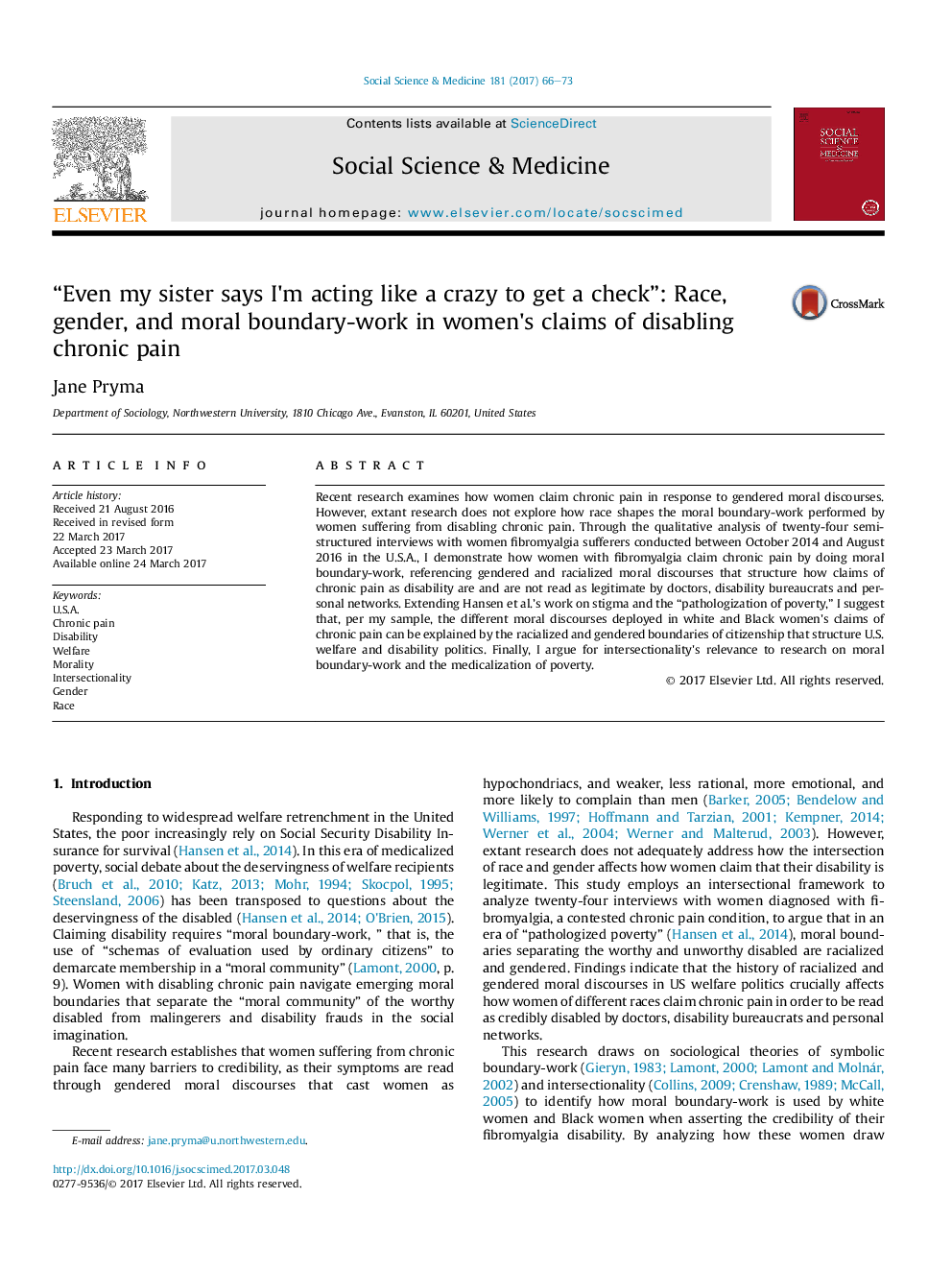| Article ID | Journal | Published Year | Pages | File Type |
|---|---|---|---|---|
| 5046599 | Social Science & Medicine | 2017 | 8 Pages |
â¢Women with fibromyalgia do moral boundary-work to be recognized as disabled.â¢White and Black women interviewed did different kinds of moral boundary-work.â¢Black women described doing gendered and racialized boundary-work to claim disability.â¢Black women reported racialized welfare discourses affect how they claim disability.â¢Intersectional approaches are needed to grasp how people experience chronic pain.
Recent research examines how women claim chronic pain in response to gendered moral discourses. However, extant research does not explore how race shapes the moral boundary-work performed by women suffering from disabling chronic pain. Through the qualitative analysis of twenty-four semi-structured interviews with women fibromyalgia sufferers conducted between October 2014 and August 2016 in the U.S.A., I demonstrate how women with fibromyalgia claim chronic pain by doing moral boundary-work, referencing gendered and racialized moral discourses that structure how claims of chronic pain as disability are and are not read as legitimate by doctors, disability bureaucrats and personal networks. Extending Hansen et al.'s work on stigma and the “pathologization of poverty,” I suggest that, per my sample, the different moral discourses deployed in white and Black women's claims of chronic pain can be explained by the racialized and gendered boundaries of citizenship that structure U.S. welfare and disability politics. Finally, I argue for intersectionality's relevance to research on moral boundary-work and the medicalization of poverty.
